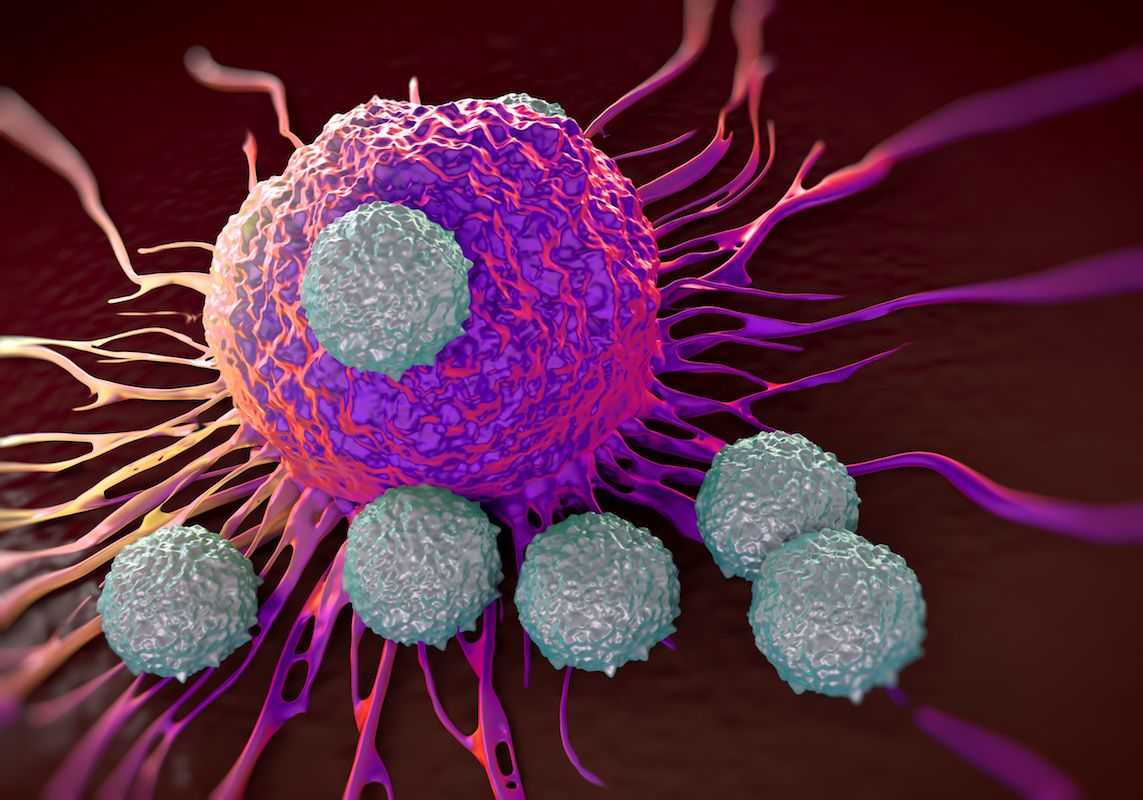Treatments targeting activation of the RAC1 protein could stop cancer cells from spreading
- RAC1 interacts with an enzyme that promotes cancer cell growth
- Once abnormally activated, this protein drives cancer metastasis
- Disabling this interaction provides a new strategy to treat late-stage cancer
BUFFALO, N.Y. — Metastasis, or spread of a cancer tumor from one organ to another, is a complex process about which much is still unknown. A collaborative research team led by scientists from Roswell Park Comprehensive Cancer Center and Wake Forest University Baptist Medical Center has determined that a small protein, RAC1, actively recruits enzymes involved in nucleotide production to promote cancer metastasis. Their findings, published in Nature Communications, suggest that targeting this interaction may provide a new strategy for treating advanced cancers.
RAC1 is a small protein — part of a class of enzymes known as GTPases — that regulates many processes in healthy cells, including cell motility. For reasons not yet understood, it can become hyperactivated in cancer cells to promote metastasis.
Using a combination of computer modeling and monitoring of cellular biosensors, the Roswell Park researchers tagged the RAC1 protein in a preclinical model and found that it directly interacts with IMPDH2, an enzyme that helps provide cancer cells with building blocks to grow and spread. RAC1 then recruits IMPDH2 to cell membrane protrusions — a process pivotal for cancer cell invasion.
“The ability of cancer cells to invade is a prerequisite for metastasis,” says Anna Bianchi-Smiraglia, PhD, Assistant Professor of Oncology in the Department of Cell Stress Biology at Roswell Park. “We discovered that the small GTPase RAC1, an important player in the invasion of cancer cells into healthy tissue, actively recruits enzymes involved in GTP production to sustain its own activation and promote invasion.”
Metastasis involves many different steps, including invasion of cancer cells into local tissues, blood and lymphatic vessels, and finally distant organs. The Roswell Park study suggests that disabling RAC1 interactions could be an effective target for drugs or treatments to disrupt the various metabolic pathways that fuel metastasis, and the results offer a starting point for this goal by identifying the specific areas in which IMPDH2 and RAC1 connect.
“Not only do interactions with IMPDH2 represent an important mechanism of RAC1 activation in live cells, but by virtue of these interactions, other metabolic enzymes are recruited to the same locations to fuel cancer and metastasis,” says Dr. Bianchi-Smiraglia. “Disabling such interactions may provide a new strategy to suppress metastatic spread.”
The study was supported by grants from several National Institutes of Health agencies: the National Cancer Institute (grants CA264984, CA224434, CA190533, CA248018, T32CA247819 and P30CA16056), the National Institute of General Medical Sciences (grant R35GM122596) and the National Institute of Neurological Disorders and Stroke (grant NS045630). Additional support was provided by donations to Roswell Park.
###
Roswell Park Comprehensive Cancer Center is a community united by the drive to eliminate cancer’s grip on humanity by unlocking its secrets through personalized approaches and unleashing the healing power of hope. Founded by Dr. Roswell Park in 1898, it is the only National Cancer Institute-designated comprehensive cancer center in Upstate New York. Learn more at www.roswellpark.org, or contact us at 1-800-ROSWELL (1-800-767-9355) or ASKRoswell@RoswellPark.org.
Rebecca Vogt, Media Relations Specialist
716-845-4919; rebecca.vogt@roswellpark.org

